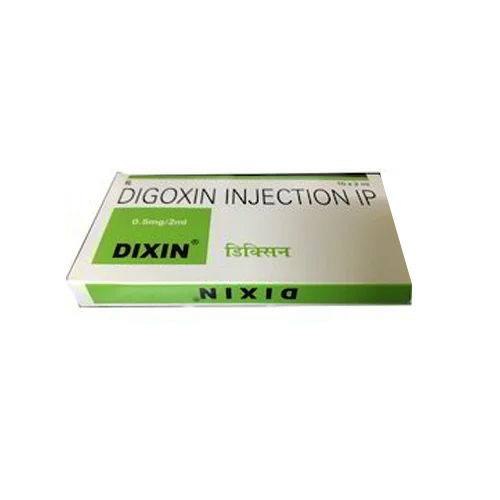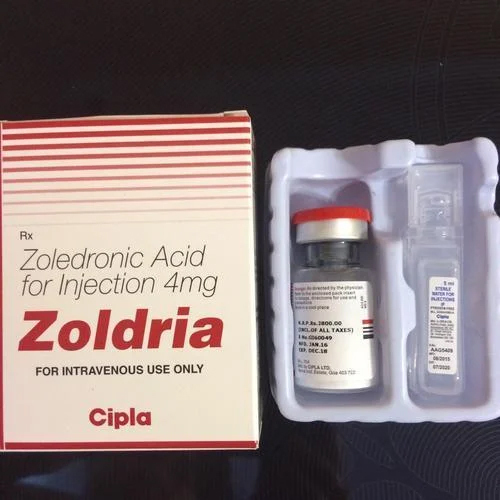


Digoxin Injection IP
Price 35 INR/ Pack
Digoxin Injection IP Specification
- Usage
- 0.5 mg
- Storage
- Keep dry & cool place
- Grade
- Medical Grade
Digoxin Injection IP Trade Information
- Minimum Order Quantity
- 10000 Packs
- Delivery Time
- 1 Week
- Main Export Market(s)
- Asia, Australia, Central America, North America, South America, Eastern Europe, Western Europe, Middle East, Africa
About Digoxin Injection IP
Here are some key points about Digoxin Injection:


Price:
- 50
- 100
- 200
- 250
- 500
- 1000+
More Products in Antibiotic Medicines Category
Zoldria 4 Mg Injection
Price 650 INR / Pack
Minimum Order Quantity : 1000 Packs
Dosage : 4 mg
Usage : Clinical,Hospital,Personal
Storage : Keep dry & cool place
Medicine Type : Zoldria 4 Mg Injection
Cytoblastin 10 Mg Vinblastin
Price 350 INR / Pack
Minimum Order Quantity : 1000 Packs
Dosage : 10 mg
Usage : Clinical,Hospital,Personal
Storage : Keep dry & cool place
Medicine Type : Cytoblastin 10 Mg Vinblastin
Liposomal Doxorubicin
Price 4500 INR / Pack
Minimum Order Quantity : 100 Packs
Dosage : 10 ml
Usage : Clinical,Hospital,Personal
Storage : Keep dry & cool place
Medicine Type : Liposomal Doxorubicin
Lupride Leuprolide Acetate
Price 4900 INR / Pack
Minimum Order Quantity : 100 Packs
Dosage : 3.75 mg
Usage : Clinical,Hospital,Personal
Storage : Keep dry & cool place
Medicine Type : Lupride Leuprolide Acetate
 |
DHEER HEALTHCARE PRIVATE LIMITED
All Rights Reserved.(Terms of Use) Developed and Managed by Infocom Network Private Limited. |
 English
English Spanish
Spanish French
French German
German Italian
Italian Chinese (Simplified)
Chinese (Simplified) Japanese
Japanese Korean
Korean Arabic
Arabic Portuguese
Portuguese
 Send Inquiry
Send Inquiry




